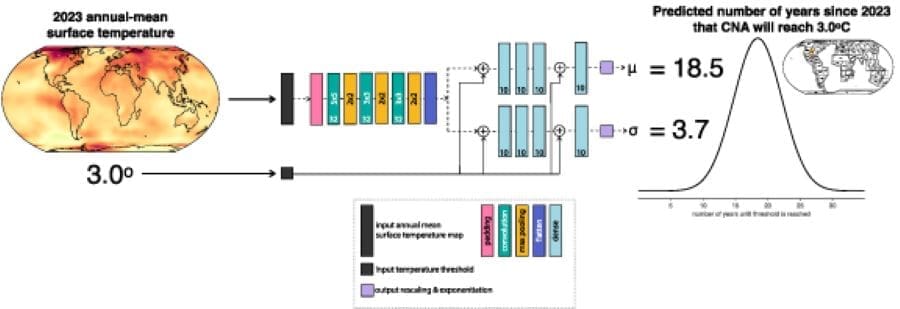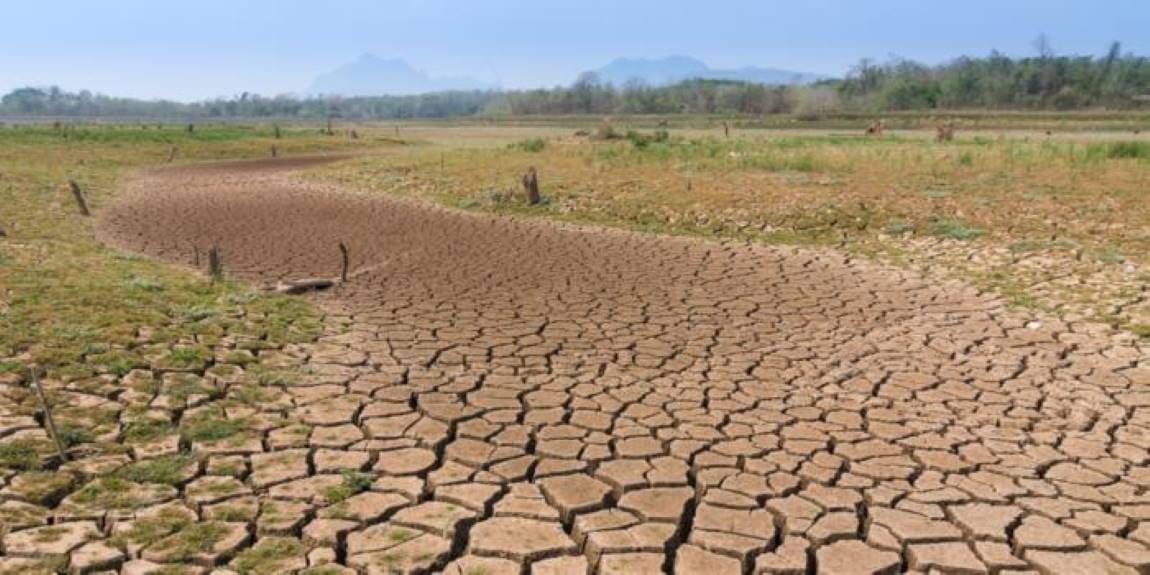Artificial Intelligence (AI) is reshaping our understanding of climate change timelines, with new research revealing that regional temperature thresholds will be reached faster than previously estimated.
A study led by three prominent climate scientists – Elizabeth Barnes of Colorado State University, Noah Diffenbaugh of Stanford University, and Sonia Seneviratne of ETH-Zurich – uses advanced AI techniques to refine predictions from 10 global climate models.
Their findings, published in Environmental Research Letters by IOP Publishing, suggest that most land regions will likely exceed critical temperature thresholds far earlier than expected.
The research forecasts that the 1.5°C warming threshold, a critical benchmark identified by the Intergovernmental Panel on Climate Change (IPCC), will be surpassed in most regions by 2040, if not sooner.

Alarmingly, several areas are predicted to reach a 3°C rise by 2060, a significant acceleration compared to previous estimates. Regions expected to experience rapid warming include South Asia, the Mediterranean, Central Europe, and parts of sub-Saharan Africa. These findings highlight heightened risks for ecosystems and vulnerable communities already grappling with climate-related challenges.
The team employed an AI-based transfer-learning approach, which leverages data from multiple climate models and observations to enhance regional warming projections. This innovative method offers greater precision and a deeper understanding of when specific regions will surpass key warming thresholds.
Unprecedented regional warming trends
Key findings from the study include:
- 34 IPCC-defined regions will likely exceed 1.5°C of warming by 2040.
- Of these, 31 regions are expected to reach 2°C of warming by the same year.
- By 2060, 26 of these regions are projected to surpass a 3°C increase.
These predictions show the urgency of understanding regional climate dynamics. While global temperature averages are often emphasized in climate discussions, localized changes can have more immediate and severe impacts.
Noah Diffenbaugh, a co-author of the study, emphasized the importance of narrowing uncertainties in regional forecasts. “It is important to focus not only on global temperature increases but also on specific changes happening in local and regional areas. By constraining when regional warming thresholds will be reached, we can more clearly anticipate the timing of specific impacts on society and ecosystems,” he explained.
Diffenbaugh noted that regional changes are inherently more complex due to variability in atmospheric, oceanic, and land processes, as well as the “noisier” nature of smaller-scale climate systems.
The role of AI in refining climate models
Elizabeth Barnes highlighted the significance of using advanced AI techniques, such as transfer learning, in climate research. “Our research underscores the importance of incorporating innovative AI techniques like transfer learning into climate modelling to potentially improve and constrain regional forecasts and provide actionable insights for policymakers, scientists, and communities worldwide,” she said.
The study’s methodology represents a leap forward in precision forecasting, using AI to blend observational data with insights from multiple models. This approach not only refines regional predictions but also serves as a tool for more informed decision-making at local levels.
Urgent implications
The accelerated timeline for surpassing warming thresholds signals an urgent need for proactive climate mitigation and adaptation strategies. As these regional warming trends unfold, vulnerable communities and ecosystems are at greater risk of heatwaves, droughts, and other climate-related disruptions. Policymakers and scientists face mounting pressure to translate these findings into actionable plans that address both the causes and consequences of climate change.
The findings add to the growing body of evidence that global climate action must account for local and regional realities. By sharpening focus on where and when the impacts will be most severe, this AI-enhanced research offers a pathway for targeted interventions and a clearer understanding of the stakes.
Journal Reference:
Elizabeth A. Barnes, Noah S. Diffenbaugh and Sonia I. Seneviratne, ‘Combining climate models and observations to predict the time remaining until regional warming thresholds are reached’, Environmental Research Letters 20, 014008 (2024). DOI: 10.1088/1748-9326/ad91ca
Article Source:
Press Release/Material by IOP Publishing
Featured image: AI predicts that most of the world will see temperatures rise to 3°C much faster than previously expected. Credit: IOP Publishing | CC BY




